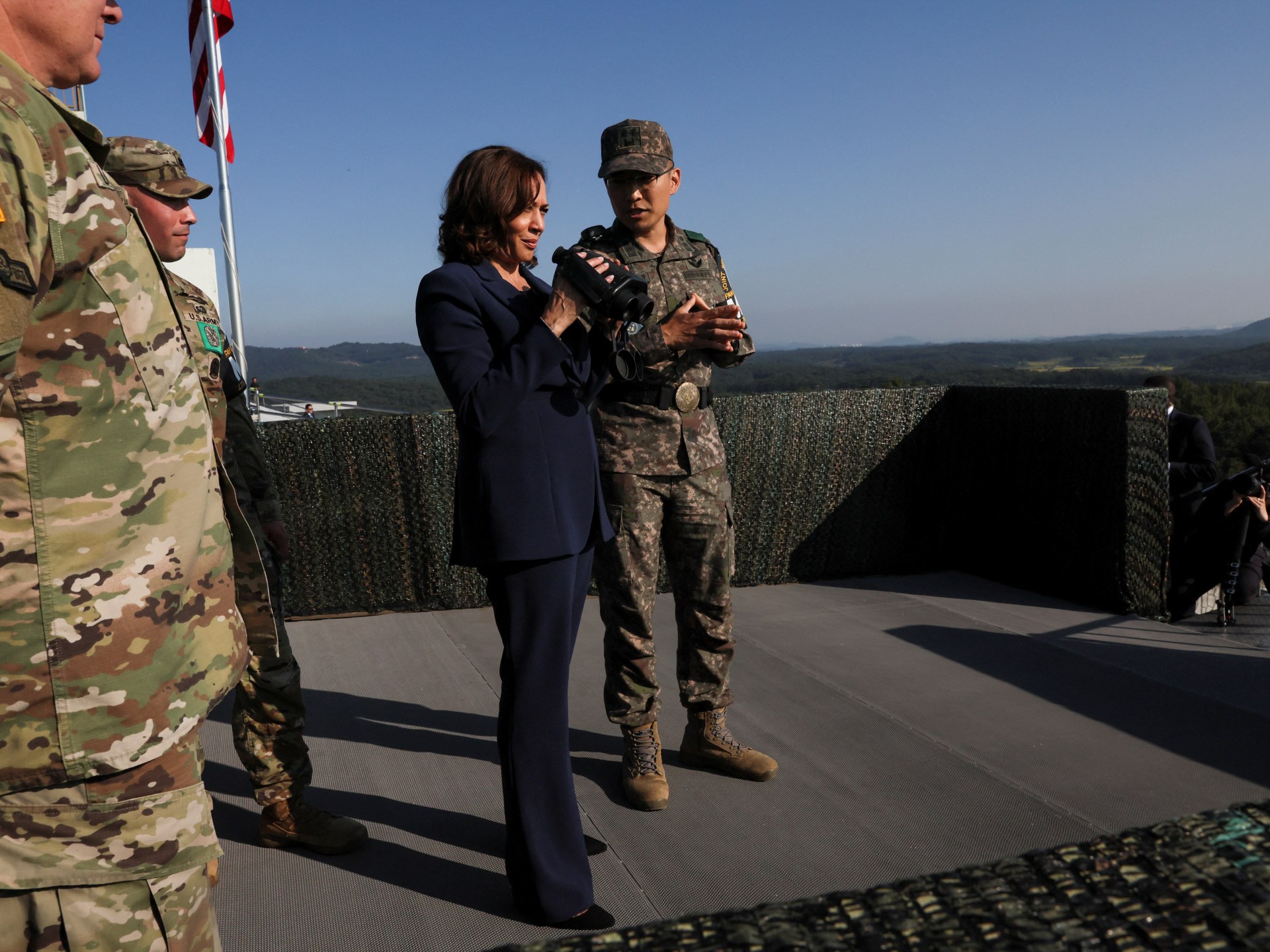US Vice President Kamala Harris sharply criticized North Korea - on Thursday - describing it as a country that has accumulated a "brutal dictatorship", an illegal weapons program and widespread human rights violations, during her visit to the inter-Korean border.
On her first visit to the Demilitarized Zone separating the two Koreas, Harris said the heavily fortified border area was starkly reminiscent of the "dramatically different paths" taken by the two neighbors.
"In the north, there is a brutal dictatorship, massive violations of human rights and an illegal weapons program that threatens peace and stability," she said.
"The United States and the world strive to achieve peace and stability on the Korean Peninsula, and the DPRK does not pose a threat," said the US vice president, using North Korea's official name.
Harris visited the region after arriving in the South Korean capital, Seoul, in the early hours of Thursday morning, amid heightened regional tension over North Korea's missile launches and China's moves in the Taiwan Strait.
South Korean President Yoon Seok-yeol receives US Vice President Kamala Harris (Getty Images)
Fears
Harris' visit to South Korea - a close ally of the United States - comes amid fears that the North is about to conduct a nuclear test, with South Korean officials saying North Korea has completed preparations for what will become its seventh nuclear test since 2006, and its first since 2017.
Harris and South Korean President Yoon Suk Yeol held talks, denouncing North Korea's escalation of nuclear rhetoric and missile tests, most recently on Wednesday.
"We condemned North Korea's provocative nuclear rhetoric and ballistic missile launches, in violation of UN Security Council resolutions, and discussed our response to any possible future provocations, including through trilateral cooperation with Japan," the White House said in a statement.
The statement added that Harris and Yoon reaffirmed the common goal, which is the complete denuclearization of the Korean Peninsula.
Yun's office said that if North Korea went ahead with serious provocations, such as a nuclear test, he and Harris had agreed to take "jointly prepared countermeasures," without elaborating.

